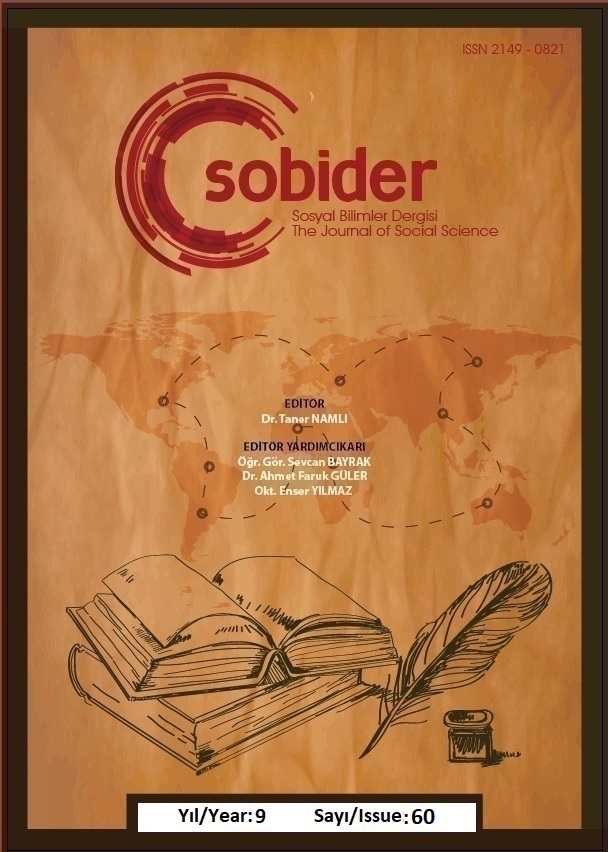Author :
Abstract
Demokratik sistemlerde bir ülkenin yönetimini, çoğunluğun oylarıyla iktidara gelmiş siyasal yapılar üstlenirler. Çoğunluğun temsiliyetini üstlenen bu siyasal yapılar bazen azınlıkta bazen de sistemin dışında kalan partileri ve bu partileri destekleyen kitleleri görmezden gelebilmektedir. Temsili demokrasinin hüküm sürdüğü hemen her ülkede bu durumla karşılaşmak mümkündür. Demokratik yapıların temsili yönetim politikalarından kaynaklanan eksiklik, toplumun tamamını kuşatamamasının yanında temsil ettiği kitlelerin dışında kalan bireylerin düşünce, istek, inanç ve arzularını da göz ardı edebilmektedir. 20. yüzyılın ikinci yarısından itibaren demokratik yönetim politikalarında bireylerin talep ve istekleri doğrultusunda önemli değişiklikler meydana gelmiştir. Temsili demokrasinin gündelik hayatın ürettiği farklılıkları kuşatamamasından kaynaklanan eksik temsil, toplumsal yaşamın birçok alanında alternatif çözümler üretmiş ve sivil ağlar sayesinde siyaset, ekonomi, kültür, eğitim gibi birçok alan dönüşüme uğramıştır. Farklılıkların dolaşıma girdiği bu dönemde bireyler, toplumsal ve siyasal alanın öznesi olarak toplumsal yaşama sivil toplum kuruluşları ile işlerlik kazandırmıştır. Siyasal ve toplumsal yaşama birçok açıdan katkı sunan sivil toplum kuruluşları, meslek odalarından, kadın örgütlenmelerine, eğitim derneklerinden, sağlık ve sosyal vakıflara, insan haklarından ekolojik örgütlenmelere kadar hemen her alanda yürüttükleri çalışmalarla hayatı dört bir yandan sarmalayarak demokratik toplumu katılımcı bir perspektifle kuşatmıştır.
Keywords
Abstract
In democratic systems, the administration of a country is assumed by the political structures that have come to power with the votes of the majority. These political structures, which assume the representation of the majority, can sometimes ignore the parties that are in the minority and sometimes outside the system, and the masses that support these parties. It is possible to encounter this situation in almost every country where representative democracy prevails. The deficiency caused by the representative administration policies of democratic structures can not encompass the entire society, but also ignore the thoughts, wishes, beliefs and desires of individuals who are outside of the masses they represent. Since the second half of the 20th century, important changes have occurred in democratic management policies in line with the demands and wishes of individuals. The underrepresentation caused by the inability of representative democracy to encompass the differences produced by daily life has produced alternative solutions in many areas of social life, and many fields such as politics, economy, culture and education have been transformed thanks to civil networks. In this period, when the differences circulated, individuals as the subject of the social and political sphere, brought social life into action with non-governmental organizations. Contributing to political and social life in many ways, non-governmental organizations have surrounded the democratic society with a participatory perspective, by wrapping life on all sides with their work in almost every field, from professional chambers, women's organizations, education associations, health and social foundations, human rights to ecological organizations.
Keywords
- Aktay, Y. (2003). Sivil Toplum ve Sıkıntıları: Oryantalizm, Şiddet, Vesaire, Sivil Toplum Dergisi, Sayı:1, s. 51-61.
- Bayram, R. (2015). Devlet Yönetiminde Sivil Toplum Örgütlerinin Rolü ve Önemi, Türk İslam Dünyası Sosyal Araştırmalar Dergisi, 2(3), Haziran, 115-137.
- Belge, M. (2003). Sivil Toplum Nedir?, (Haz: Nurhan Yentürk-Arzu Karamani), Sivil Toplum ve Demokrasi Konferans Yazıları, No:1.
- Cevizci, A. (2000). Felsefe Terimleri Sözlüğü, İstanbul: Paradigma Yayınları.
- Çaha, Ö. (2003). Aşkın Devletten Sivil Topluma, İstanbul: Gendaş Yayınları.
- Gönenç, A. A. (2001), Sivil Toplum Düşünsel Temelleri ve Türkiye Perspektifi, Elektronik Kitap.
- Habermas, J. (2004). Kamusal Alan. M. Özbek (Ed.). içinde, Kamusal Alan (s.95-102). İstanbul: Hil Yayınları.
- Keane, J. (1993). Sivil Toplum ve Devlet: Avrupa’da Yeni Yaklaşımlar, (Çev: E. Akın, A. Bora, A. Çiğdem), İstanbul: Ayrıntı Yayınları.
- Keyman, F. (2004). Türkiye’de ve Avrupa’da Sivil Toplum, (Haz: A. Karamani) Sivil Toplum ve Demokrasi Konferans Yazıları No:3.
- Özbek, M. (2004). Kamusal Alanın Sınırları. M. Özbek (Ed.) içinde, Kamusal Alan (s.19-90).
- Özyurt, C. (2007). Tocqueville’de Demokratik Toplumun Doğası, Muhafazakar Düşünce Dergisi, Sayı 12, Bahar, s.23-43.
- Tekeli, İ., Katılımcı Demokrasi, Sivil Ağlar ve Sivil Toplum Kuruluşları, 18-19 Haziran 2004, İTÜ Maçka Sosyal Tesisleri İstanbul, 15. STK Sempozyumu.
- Touraine, A. (2004). Demokrasi Nedir, (Çev.Olcay Kunal), İstanbul: Yapı Kredi Yayınları.
- Yarasimos, S.(2000). Türkiye’de Sivil Toplum ve Milliyetçilik, İstanbul: İletişim Yayınları,





